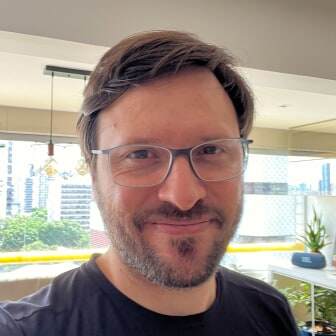Hire Remote Unity Developers
Unity is a cross-platform game engine for developing video games, simulations, and interactive 3D content. It provides developers with various tools and resources to create high-quality games. Similarly, it also offers interactive experiences for various platforms such as PC, mobile, and console.
Unity also offers a range of features and capabilities, such as physics simulation, audio, and graphics rendering. These features enable developers to create highly immersive and engaging games. Moreover, Unity has a large community of developers and a vast library of assets and plugins. One can always assess them to extend functionality, making it easier for Unity game developers to create and share their games.
What to Look for When Hiring Unity Developers?
Technical Skills
When looking for a Unity developer, there are several technical skills that you should consider:
- Proficiency in C#: Unity uses C# as its primary programming language, so a strong understanding of C# is essential.
- Unity Editor: The Unity Editor is where most development work occurs, so a developer should understand how to use it effectively.
- Game Development Fundamentals: A good Unity developer should have a strong understanding of game development fundamentals such as level design, game mechanics, user experience, and player engagement.
- Graphics and Animation: Unity is often used to create visually appealing games, so knowledge of graphics rendering and animation is crucial.
- Understanding of Scripting: Unity allows for extensive scripting, so a developer should understand scripting languages like JavaScript or Python.
- Version Control: Knowledge of version control tools such as Git or SVN is important for managing source code changes and collaborating with other developers.
- Platform-specific Skills: A Unity developer should know platform-specific skills such as Android or iOS development, depending on the game's target platform.
Soft Skills
Several soft skills are essential to look for in a Unity developer. These include:
- Creativity and innovation: A good Unity developer should be creative and able to come up with unique and innovative ideas for games.
- Problem-solving: Unity game development can be challenging, and a good Unity developer should be able to solve complex problems and find creative solutions.
- Communication: Communication skills are essential for any developer, and Unity developers should be able to explain their ideas and solutions to other team members clearly.
- Time management: Game development projects often have tight deadlines, so Unity developers should be able to manage their time effectively and prioritize tasks.
- Attention to detail: Games require attention to detail, and a Unity developer should have a keen eye for detail to ensure that their games are polished and free of bugs.
- Teamwork and leadership: Game development is often a collaborative effort, so a Unity developer should be able to work well with others and be a team player.
- Adaptability: The game development industry is constantly changing, so a good Unity developer should be adaptable and able to learn new skills and technologies as needed.
Background Experiences
Besides technical and soft skills, a good Unity developer should possess a great background in Unity-related tools. It enables them to create engaging and immersive gaming experiences.
- Experience with Unity plugins and assets: A Unity developer with experience using these tools can improve the efficiency of development and the overall quality of the end product.
- Familiarity with game engines: While the Unity game engine is quite popular, a developer with experience using other engines like Unreal Engine or CryEngine may have transferable skills that can be applied to Unity development.
- Experience with debugging tools: Debugging is critical to the development process. A Unity developer with experience in debugging tools like Unity Debugger or Visual Studio can find and fix issues more efficiently.
Top 5 Unity Developer Interview Questions
What experience do you have with Unity and game development?
This question gauges the candidate's experience with Unity and game development. The best possible answer would be to discuss any relevant experience, such as building games or game prototypes using Unity, and to highlight any specific features or tools with which the candidate has experience. Additionally, candidates should be prepared to discuss their understanding of game development concepts and best practices.
How do you optimize performance in Unity?
This question assesses the candidate's ability to identify and solve performance issues in Unity. The best possible answer would be to discuss various strategies for optimizing performance. These strategies include using asset bundles, reducing draw calls, optimizing code, and adjusting graphics settings. Candidates can also discuss specific techniques for optimizing performance, such as gameplay, UI, and graphics.
How do you handle version control in Unity projects?
This question helps assess the candidate's knowledge of version control and their experience using version control systems in Unity projects. The best possible answer would be to discuss the different version control systems. These include Git or Perforce and describe how to set up and use version control in a Unity project.
Additionally, Unity developers should be prepared to discuss best practices for working with version control in a team environment. It may include branching and merging strategies and conflict resolution.
Can you explain the concept of GameObjects in Unity and how they are used in game development?
This question helps evaluate a candidate's understanding of the fundamental building blocks of a Unity game. The best possible answer would be to explain that GameObjects are the basic units of a Unity game. You can also represent any object in the game world.
Each GameObject can have one or more components attached to it. These components include scripts, colliders, and interactions with other objects. Candidates should be prepared to discuss how GameObjects can be used to create complex game mechanics and environments.
How do you approach debugging in Unity?
This question evaluates the candidate's problem-solving skills and ability to identify and fix bugs in Unity projects. The best possible answer would be to describe a systematic approach to debugging.
Candidates should also be prepared to discuss how to handle more complex or hard-to-reproduce bugs. It can include breakpoints, stepping through code, or isolating problem areas of the game. Additionally, candidates should be prepared to discuss best practices for documenting and communicating bugs to other development team members.
















